SUMMARY
This is AI generated summarization, which may have errors. For context, always refer to the full article.
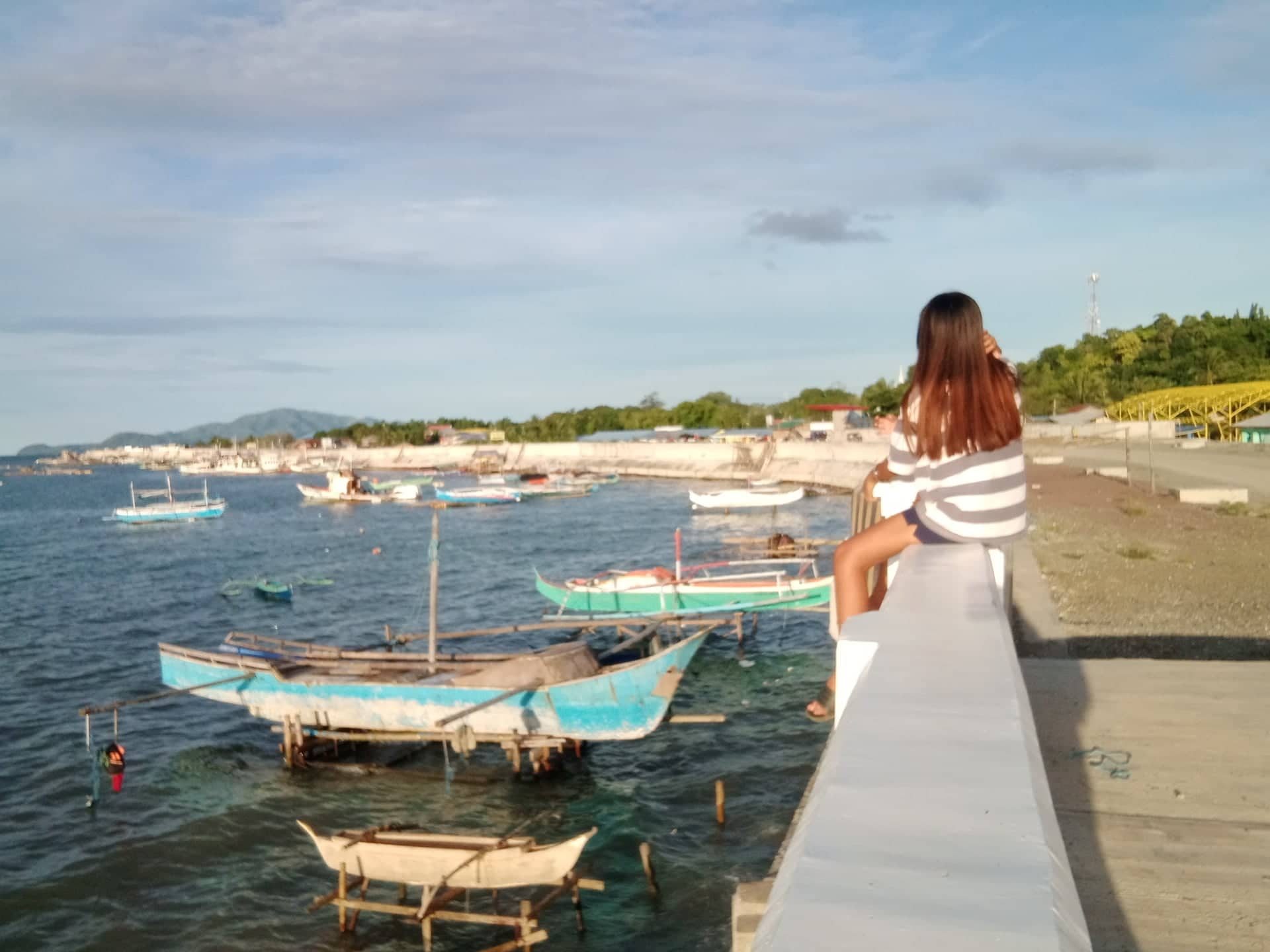
DAVAO ORIENTAL, Philippines – Experts at the state-owned Davao Oriental State University (DOrSU) confirmed the deteriorating condition of the waters of Pujada Bay, citing their study which showed pollution higher than tolerable levels, and declining marine life diversity.
The study noted that the “presence of disease-causing microorganisms like the Escherichia coli was found to be higher than the standard of <1.1 MPN (most probable number) on declared protected areas.”
Dr. Lea Jimenez, the director of the DOrSU-based Regional Integrated Coastal Resources Management Project in the Davao Region, said erosion has also contributed to the problem.
The study showed how rain delivers large volumes of water, eroded soil, and debris to the coastline from the surrounding landscape.
“These sediments may have been contaminated with pollutants that flow directly from industrial and municipal waste canals, while others come from polluted runoff in urban and agricultural areas. It may contain pesticides, fertilizers, and toxic materials which can damage or even kill the organisms within the marine ecosystem,” read part of the study.
Jimenez said their latest study came after the university set up at least eight sampling stations spread throughout the 21,200-hectare Pujada Bay to provide “a complete picture of the true health” of the bay.
Pujada Bay is a protected landscape and seascape located in Mati, Davao Oriental’s capital city, that has been adjudged as one of the world’s most beautiful bays. The bay is characterized by extensive coral reefs, seagrass beds, and mangrove forests.
“The bay is home to many marine organisms and serves as a source of livelihood to many fisher folks. Hence, it is imperative to determine and assess the health status of the Bay relative to nutrient and heavy metals loading to ensure the sustainability of this resource,” the report read in part.
Scientists at the DOrSU released the results of their nutrient mapping of the Pujada Bay weeks after the Mati City government denied a Rappler report about the alarming levels of fecal coliform contamination and pollution of the city’s top tourism come-on.
“Data revealed that Pujada Bay is at risk of eutrophication due to enrichment of nitrates and sulfates which values exceed the standard quality for coastal waters. There is high TDS (total dissolved solids) and low bicarbonates, indicating reduced productivity and declining marine life diversity,” read the nutrient mapping project report.
Eutrophication takes place when a body of water has excessive nutrients due to runoff from the land. The process may result in a dense growth of plant life and death of animal life from lack of oxygen or, simply put, harmful algal blooms, dead zones, and fish kills.
In a statement earlier, the city government quoted Department of Environment and Natural Resources (DENR) regional director Fidel Evasco as downplaying the report about the bay’s pollution level, pointing out that the condition of the water taken from one sampling station does not reflect the state of the entire bay.
City hall also said mitigating measures were being done to minimize if not prevent the contamination of the bay.
Small Pujada Bay fishermen interviewed by Rappler complained of their declining fish catch.
“Five years ago, we used to go home with 15 kilos of fish catch each. Now, we only average just one kilo. Pollution is worsening our problem,” said the 57-year-old fisherman Eustaquio Cuaresma.
Cuaresma said aggravating their problem was the growing number of big fishermen from General Santos City who turned Pujada Bay into one of their fishing grounds. – Rappler.com
Add a comment
How does this make you feel?
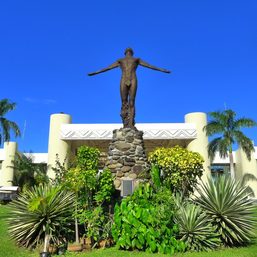
![[The Slingshot] Alden Delvo has retired](https://www.rappler.com/tachyon/2024/05/slingshot-alden-delvo-05042024.jpg?resize=257%2C257&crop=243px%2C0px%2C720px%2C720px)



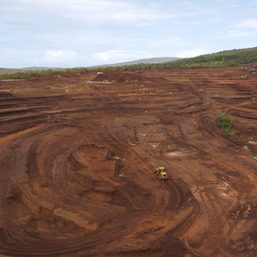
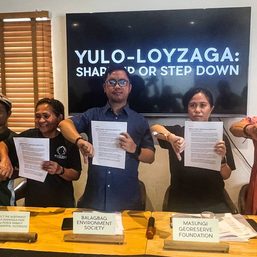

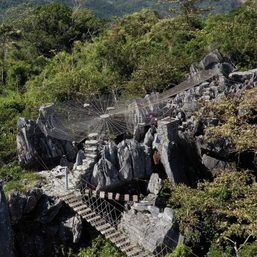
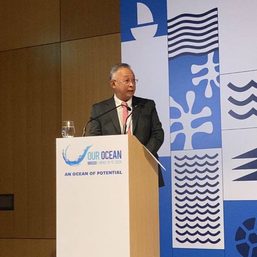
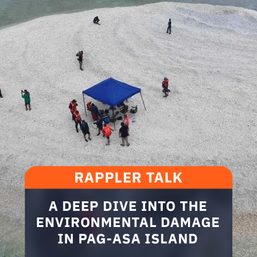
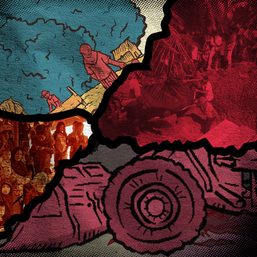

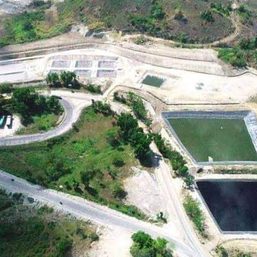
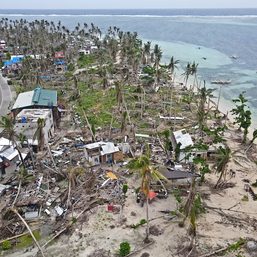
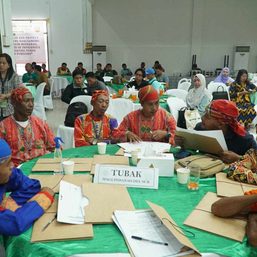
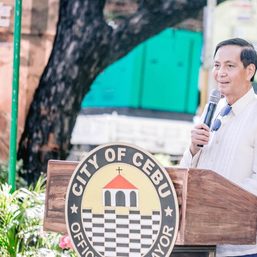
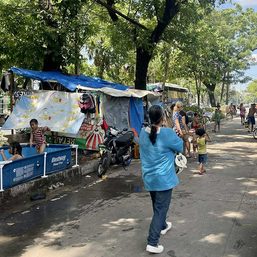


There are no comments yet. Add your comment to start the conversation.